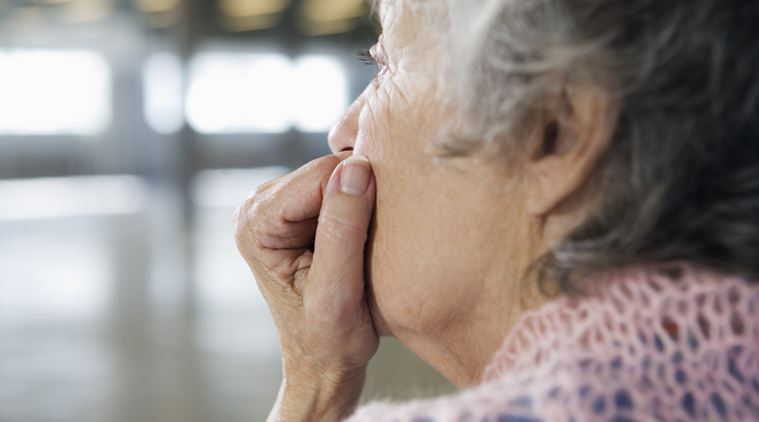|
There’s something or the other to worry about for everyone in life. It might be anything-money, power, position, survival, health, attention, beauty or brawns. Constant worrying over some issue turns into stress which affects well-being ultimately. We are equipped to handle stress when we are young but as we grow old, dealing with stressful issues becomes difficult and we resent facing it. We are the same individual who thinks and deals in the same way then what’s so different about coping with stress as we grow older?
Ageing Body An ageing person’s cells are also ageing. Various systems in the body seem to decline in functionality including the circulatory and respiratory system. Lung capacity declines more in people who lead a sedentary lifestyle. All these prevent our body from issuing the same natural response to stress. For example, when we see a racing car coming right against us our adrenal glands release cortisol and adrenaline hormones. Cortisol is the primary stress hormone which acts as the major alarm system communicating with the brain and other parts of the body balancing the fight-or-flight situation. In an ageing person, the automatic response of moving away from the position to a safer place is lacking and the individual stands still sometimes. Stress also diminishes our ability to focus, make decisions and stay attentive. Some might also suffer from memory-related problems while others find it difficult to fall asleep. Stress Factors Change with Age Stress remains constant but factors that induce stress keep changing. As children it might be fear of an examination or losing a friendship. As adults it might be office-related stress or parenting a disabled child that needs constant attention. But as a person grows old common reasons for stress include loss of a loved one, ample time but not much fruitful work to be done, relationship changes with children or a chronic illness that keeps haunting your mind. Common symptoms of such stress include:
A lot many people ignore subtle indications of stress and run to a physician for help only when it has reached a point of no-return. Look for subtle signs of stress in your life and discuss with your beloved friend/family members. Go for a physical checkup to track down any underlying condition such as high blood pressure levels which might need immediate treatment. The physician is sure to recommend eating a healthy diet and doing physical activity regularly. Include those activities that make you happy, satisfied and complete. It might be gardening, walking in the park together with friends or a group yoga class. This gives you ample time to socialize and take time off your daily stressors as your mind is occupied with some other activity. Some believe that adopting a pet is best as you have a companion in the form of a dog or cat. But ensure that you are physically and monetarily able-enough to own one. An important part stress management includes triggering relaxation response that lowers blood pressure, stress hormones, heart rate and oxygen consumption. Yoga, tai chi, meditation and breathing exercises are great ways to manage stress. There are many other effective ways to deal with stress mentioned at www.firsteatright.com that are practical and result-oriented. Cognitive behavioral therapy can also be pursued for fighting stress. It involves throwing away negative thoughts and replacing them with positive thoughts. All these are great ways to fight stress but don’t show effects immediately. Hence, the physician might prescribe antidepressants along with these practices for better results. Comments are closed.
|
AVOID FRAUD. EAT SMART.+91 7846 800 800
AuthorDietitian & Nutritionist Dr. Nafeesa Imteyaz. Archives
November 2022
Categories
All
Dr. Nafeesa's Blog @blogspot |
- Home
- Written Testimonials
- Consult
- Clinics
- Blogs
-
Diet & Nutrition
- Diabetes Reversal
- IVF IUI not needed for PCOS PCOD Infertility
-
Medical Nutrition
>
-
Disease & Conditions
>
- Infertility | PCOS
- Diabetes Mellitus
- Cholesterol
- Hypothyroid
- Kidney Problems
- Hypertension
- Cardiovascular Diseases
- Liver Diseases
- Gastro intestinal disorder
- Cancer
- Metabolic Disorders
- Orthopedic Disorders
- Eating Disorders
- Dietary Recall
- Weight Record Filled By Clients
- Online Payment Transaction Details
- Online Clients Weight Check Form
- Our Program Package Service Charges
- Weight Record 2017 Clients
- Measurements sent by Clients
- Terms & Conditions Of Payment
- Thanks. Your Form is Submitted
- Video Testimonials
- Lifestyle & Wellness
- Lifestyle & Wellness Blog
- Allergy & Intolerance
- Weight Loss / Gain
- Weight Loss / Slimming Blog
-
Disease & Conditions
>
- Life Cycle Nutrition >
- Sports Nutrition >
- Integrity in Nutrition
- Knowledge Centre
© COPYRIGHT 2022. ALL RIGHTS RESERVED. FRST HEALTHCARE PVT LTD.
Dr. Nafeesa Imteyaz of First Eat Right clinic, is the Best Dietitian Nutritionist in Bangalore. Best Dietitian Nutritionist in Pune. Best Dietitian Nutritionist in Hyderabad. Best Dietitian Nutritionist in Chennai. Best Dietitian Nutritionist in Mumbai. Best Dietitian Nutritionist in Delhi. Best Dietitian Nutritionist in Kolkata.


